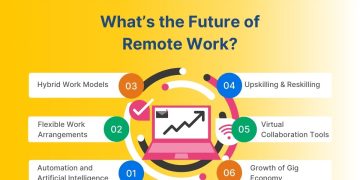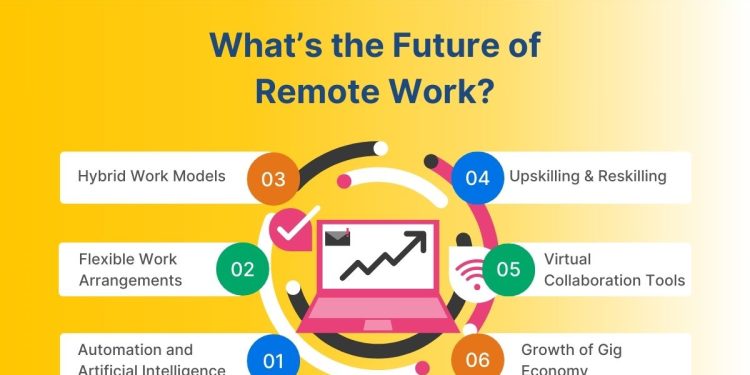💻 Introduction
Remote work has transformed India’s professional landscape, especially accelerated by the COVID-19 pandemic. By 2025, remote and hybrid work models are becoming permanent fixtures, reshaping how companies and employees operate.
📈 Current Impact
- Increased flexibility boosting employee productivity and satisfaction.
- Reduction in commuting time and related costs benefiting workers.
- Companies accessing a wider talent pool beyond metropolitan areas.
- Growth of digital collaboration tools and platforms enabling seamless work.
⚠️ Challenges
- Maintaining work-life balance and preventing burnout.
- Cybersecurity risks associated with distributed work environments.
- Infrastructure gaps like unreliable internet in rural or semi-urban areas.
- Managing team cohesion and company culture remotely.
🏢 Future Trends
- Hybrid work models combining office and remote work for flexibility.
- Rise of coworking spaces in smaller cities to support remote workers.
- Use of AI and VR to enhance virtual collaboration and training.
- Emphasis on mental health and employee well-being programs.
🧠 Final Thought
The rise of remote work is reshaping India’s economy and society, offering both opportunities and challenges. Adaptive policies and technologies will be key to harnessing its full potential.

































































